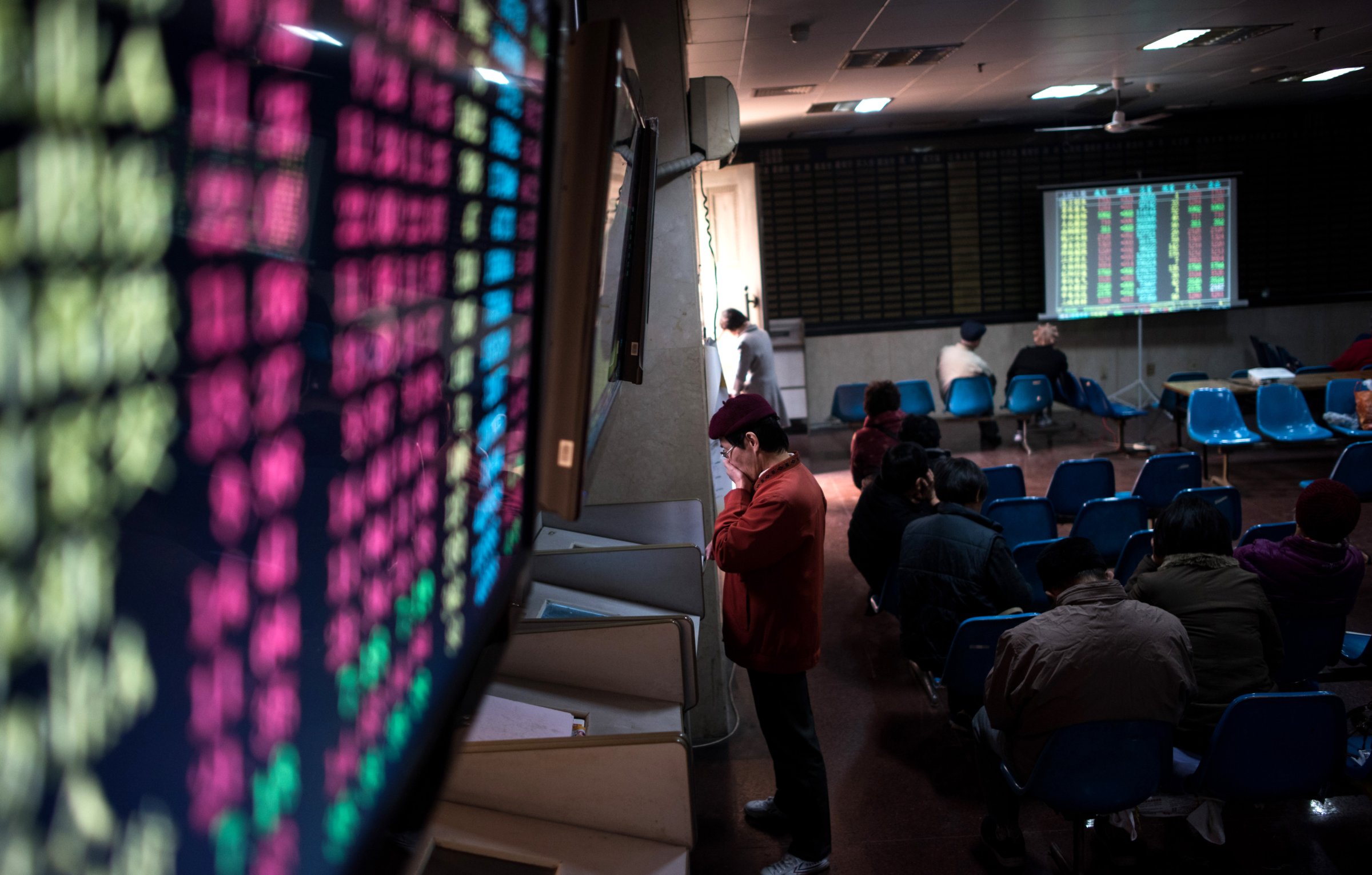
Just eight days into 2016, Chinese traders must have breathed a collective sigh of relief. After a dispiriting week in which the country’s CSI 300 Index lost more than 12% of its value, obliterating all of last year’s gains, the composite crept up by the end of Friday trading, adding 2%.
The early year market volatility in the world’s second-largest economy triggered panic throughout the region—where Japan’s Nikkei ended the week with its second-worst yearly debut in history—and in the U.S., where the S&P 500 closed down 2.4% on Thursday.
Friday’s China rebound, though, won’t erase fears about the puzzling way in which Beijing authorities have handled the nation’s stock market, nor remove the danger signs flashing around the Chinese economy. On Thursday evening, China abruptly announced it was abandoning a so-called circuit breaker that would suspend trading for the day if stocks dropped by more than 7%. The mechanism had only operated for four days but had been triggered twice during its brief lifetime. On Thursday, the Shanghai exchange operated for less than half an hour before mass sell-offs prompted the bourse to shutter for the rest of the day.
Announcing the mechanism’s suspension on Thursday evening, the China Securities Regulatory Commission said on its website that “On balance, the current negative impact outweighs positive effects.” It was a dry description for a stunning policy u-turn. Indeed, anticipation of the circuit-breaker kicking into action likely catalyzed panic-selling, rather than introducing stability in the roiled market.
The latest stock woes follow a summer in which China attempted to stem a more than 40% nosedive through ham-fisted measures that involved everything from pouring hundreds of billions of state dollars into propping up shares to locking up journalists who dared to investigate China’s economic health. Beijing’s maneuvering only spooked investors more. Because of rules that stopped trading if a stock careened more than 10%, roughly half of Chinese listed companies found themselves sitting on the sidelines at some point over the summer. Throughout the ordeal, Chinese official media exhorted citizens to continue pouring money into what was still, according to some analysts, an overheated market. Patriotism was to be expressed in share terms.
Autumn brought some respite—and a measure of prestige for the nation’s economic planners. Late last year, after much lobbying by Beijing, the International Monetary Fund added the yuan to its basket of select global reserve currencies, along with the likes of the U.S. dollar and Japanese yen Since then, the yuan, which already suffered a surprise devaluation last summer, has continued to slide. The currency swoon makes Chinese exports cheaper at a time of lowered demand for Chinese-made goods. By Thursday, the yuan had dipped to its lowest level against the dollar in five years.
In fact, the yuan’s decline would have been even more precipitous had the Chinese central bank not intervened by propping up its value through its hoard of foreign-currency reserves, the world’s largest. In 2015, Beijing lost nearly $513 billion in foreign-exchange reserves, with a record $107.9 billion shed in December alone.
Overall Chinese economic indicators have remained weak. Growth is down, while debt balloons as unprofitable state-owned firms continue receiving cash infusions from the government. Manufacturing remains sluggish. Meanwhile, spooked Chinese are moving more and more money out of their homeland.
Amid the disappointing numbers—key official data will be released soon—more alarm bells, as China intensifies an anti-graft crackdown: A clutch of high-profile Chinese businessmen and investors have disappeared in recent months, occasionally prompting suspension in trading of their company shares. Some, like Guo Guangchang—the head of conglomerate Fosun, which owns global resort chain Club Med—eventually reappeared, explaining that they were merely cooperating with authorities in unnamed investigations. Others, like executives at CITIC Securities, China’s government-linked brokerage, have been formally investigated for insider trading. The latest to disappear is Zhou Chengjian, the tailor-turned-billionaire chairman of popular domestic clothing brand Metersbonwe. Whatever happens, vanishing executives aren’t great for business sentiment in China.
Meanwhile, Chinese punters are looking for respite. Liu Yue, 26, majored in finance at the University of Liverpool. “Sometimes I feel the more economic knowledge I gain,” he says, “the less I earn from the Chinese stock market.” Liu avoided last year’s share rout but this week has cost him more than $90,000, including his principal. Still, he isn’t pulling out yet. “I wish our government would intervene less and deregulate more,” he says, “and respect the market rules.” But can Chinese regulators stop meddling? The year is early but signs are not promising.
—with reporting by Yang Siqi/Beijing
More Must-Reads from TIME
- Donald Trump Is TIME's 2024 Person of the Year
- Why We Chose Trump as Person of the Year
- Is Intermittent Fasting Good or Bad for You?
- The 100 Must-Read Books of 2024
- The 20 Best Christmas TV Episodes
- Column: If Optimism Feels Ridiculous Now, Try Hope
- The Future of Climate Action Is Trade Policy
- Merle Bombardieri Is Helping People Make the Baby Decision
Contact us at letters@time.com